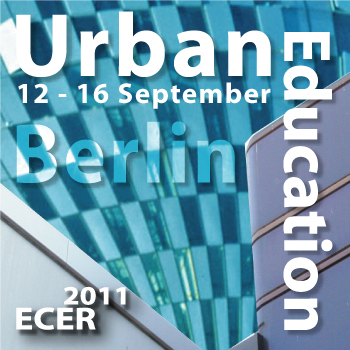Thursday, 15.09., 10.30 -12.00h
Room: JK 27/103
The EERQI (European Educational Research Quality Indicators) project was funded from 2008 to 2011 in the EU 7th Framework Program. EERA was a partner of the project consortium. The project was motivated by the fact that the international notion of scientific quality as being the main determinant for research funding and support may cause undesired side effects if the questions of how quality is interpreted and how it is measured are not adequately answered. Actual instruments for ‘measuring’ quality via citation counting and similar methods do cause such side effects, as they are strongly biased and largely inadequate for research in the SSH disciplines – such as educational research.
The EERQI project developed an approach to detect quality of educational research texts via applying an ‘intelligent combination’ of different methods that complement each other. This is what is called the EERQI prototype framework. The possibility of multilingual assistance of assessment processes by EERQI’s multilingual search engine and automatic semantic analysis are tailor made for strengthening of the European research space. The elements of the EERQI prototype framework can accompany the process of quality detection:
- The process begins with the detection of potential quality via identification of relevant texts in different sources. The EERQI content base (educational research texts provided by the EERQI publisher partners) and the multilingual search and query engine are the relevant tools for this step.
- The application of ‘aMeasure’ - a stack of tools and programs to measure extrinsic characteristics of research publications (such as citations, webmentions) – allows for collecting information about extrinsic indicators of the quality publications.
- The application of automated semantic analysis provides support for evaluating the internal quality of a text. The method developed in EERQI allows for the identification of key sentences that indicate parts of documents to which peer reviewers should pay particular attention.
- The application of a Peer Review Questionnaire that contains a tested operationalization of the intrinsic indicators of quality that were developed by the EERQI project supports the readers’ final judgments on the quality of texts.
The presentation will inform about main findings of the project and present the tools mentioned above.
Presentation by:
Prof. Dr. Ingrid Gogolin, University of Hamburg (EERQI scientific coordinator)
Dr. Alex Botte, DIPF Frankfurt (Consortium member)
Dr. Stefan Gradmann (resquested), Humboldt University Berlin (Technical Coordinator)
